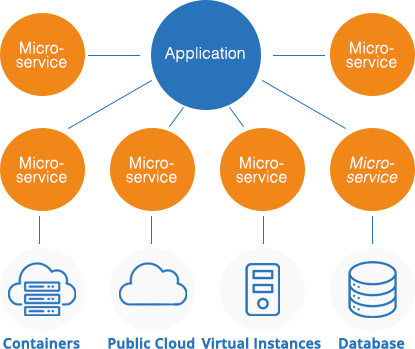|
 |
Tejas Software
Newsletter #5
|
2024 |
|
|
Microservices is an architectural approach to software development where a large application is broken down into smaller, independent services. Each service is designed to perform a specific function and can be developed, deployed, and scaled independently.
|

|
|
This approach simplifies comprehension, upkeep, and modification of particular system components without causing disruptions across the entire application.
By allowing each service to undergo independent development, rigorous testing, and seamless deployment, teams are empowered to innovate and swiftly deliver updates. This agility enables businesses to effectively respond to evolving market demands, maintaining competitiveness in the ever-changing business landscape of today.
|
A single microservice failing generally doesn't affect the entire system. This isolation of faults within a specific service ensures that problems remain confined, simplifying the process of troubleshooting, debugging, and fault isolation.
Microservices facilitate horizontal scaling, allowing individual services to scale independently according to demand. This involves increasing the number of service instances to distribute the workload across multiple servers, guaranteeing that applications can manage fluctuating traffic levels and uphold peak performance across various scenarios.
It also facilitates incremental updates, allowing teams to deliver new features or enhancements more frequently. This agile approach enables quicker feedback loops and ensures that the product remains competitive and aligned with evolving market demands.
Because microservices are deployed independently, reverting changes in case of issues or bugs is simpler and less risky, facilitating easier rollback. This capability to swiftly return to a prior version aids in preserving system stability and customer satisfaction.
|
Here are a few comparison points between Microservices and Monolithic architectures:
- Scalability: As described above, microservices allow each service to scale independently, efficiently allocating resources according to demand, whereas monolithic architectures scale by replicating the entire application, which can result in inefficient resource utilization.
- Deployment: Microservices enable agile development with smaller, independent teams focused on individual services, promoting faster iterations and continuous deployment, whereas monolithic architectures rely on a single, tightly coupled codebase, leading to slower deployment cycles and requiring coordinated updates.
- Fault Isolation: Microservices provide better fault isolation by confining failures to specific services, thus reducing their impact on the overall system, whereas monolithic architectures are vulnerable to system-wide failures due to their integrated structure.
In summary, microservices architecture provides various benefits in product maintenance and regular updates. These advantages encompass enhanced agility, scalability, fault tolerance, and team efficiency. Ultimately, they contribute to a software product that is more resilient, responsive, and easily maintainable.
|
|
|
Upcoming Events
|
|

London's Calling Salesforce
July 19, 2024
|

Manufacturing & Supply Chain
September 12, 2024
|
|

Tomorrow's Warehouse Event
October 2, 2024
|
|

|
Salesforce OMS Case Study
Tejas collaborated to create a seamless customer fulfillment experience through Salesforce OMS Implementation.
|
|
|
Incoming New Partners
|
|
Tejas is delighted to announce its official partnership with 6DX and ClickPost who enhance their customer businesses with exceptional post-purchase experiences and data-driven insights to optimize and streamline operations.
|
|
Partner Innovation
|
|
With over thirty years of experience in providing comprehensive in-store technologies to modern retailers worldwide, 6DX leads the way in technological innovation with its industry-leading framework, eMACH.Ai. Our mission is to revolutionize the modern retail experience by leveraging data-driven actionable insights for better business management.
Retailers equipped with 6DX's cutting-edge eMACH.Ai framework are experiencing benefits that go beyond traditional POS and ERP applications. By integrating advanced analytics and real-time data processing, 6DX optimizes operations, enhances customer experiences, and drives sales growth.
|

|
|
The Open API architecture of the 6DX platform is designed to seamlessly connect with any third-party ERPs such as SAP, Oracle, MS Dynamics, Infor, Gold ERP, Tally, etc. This connectivity ensures efficient inventory management, personalized marketing, and streamlined transactions. As a leader in retail technology, 6DX empowers businesses to stay ahead of market trends and meet evolving consumer demands.
Learn more at: www.i6dx.com
|
|
|
|
|
|
|
|
|
©2024, Tejas
Software. All Rights Reserved.
|
|
|
|








